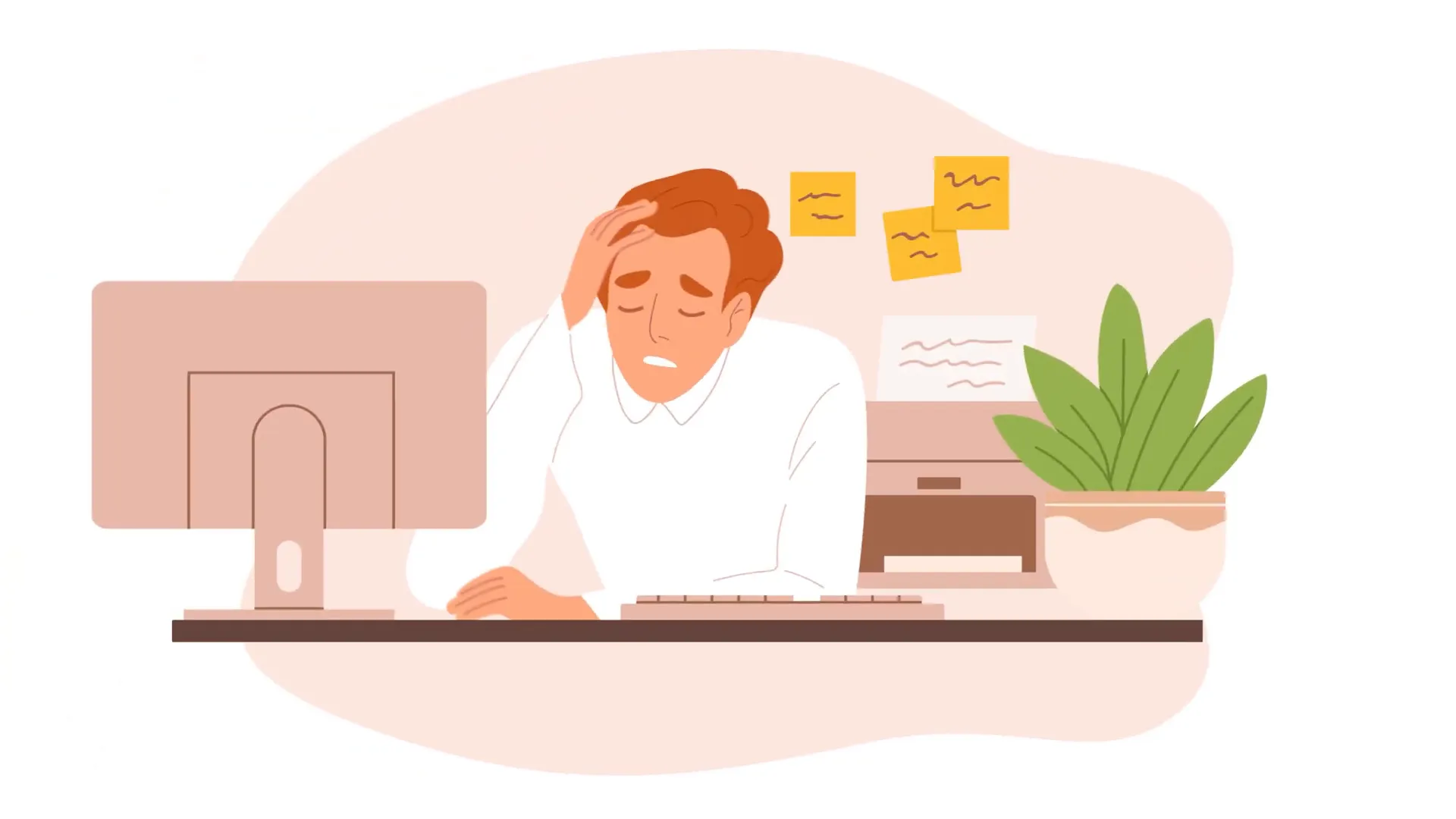
How to Overcome Burnout and Find Motivation

Table of Contents
- Introduction 🌟
- Review Your Schedule 📅
- Get More Sleep 💤
- Know When You’ll Have Energy and When You Won’t ⏰
- Take a Break ☕
- Exercise 💪
- Schedule in Time for Yourself 🛁
- Meditate 🧘♂️
- Change Jobs 🔄
- Conclusion 🌈
- FAQ 🤔
Introduction 🌟
Feeling burnt out is more common than we’d like to admit. In today’s fast-paced world, many of us push ourselves to the limit, often neglecting our mental and physical well-being. Burnout can leave you feeling exhausted, unmotivated, and overwhelmed. However, there are practical steps you can take to reclaim your energy and enthusiasm. Let’s dive into eight effective strategies to help you overcome burnout and lead a more balanced life.
Review Your Schedule 📅
Have you taken on so many tasks that you simply can’t catch your breath? While you might have initially felt productive running at 100mph, it’s crucial to slow down; otherwise, you’re going to crash and burn!
Start by reviewing all your tasks. Identify what’s essential and what can be canceled or reshuffled. Creating breathing space in your schedule allows you to gather your thoughts and remain productive. A relaxed schedule is key to maintaining your mental health.

Get More Sleep 💤
Sleep is fundamental to our daily lives and has been scientifically proven to be a top cause of burnout. Many overlook its importance, but you can’t be productive without adequate sleep.
A great way to analyze your sleep is by using a science-based app like RISE. This app analyzes your sleeping patterns and helps you understand how much sleep you need to recover from sleep debt. By reviewing these statistics, you can optimize your energy levels and combat burnout effectively.

Know When You’ll Have Energy and When You Won’t ⏰
Understanding how sleep affects your energy levels is critical. This knowledge will enable you to tackle harder tasks when you have the most energy. RISE provides a visualization of your energy levels throughout the day, highlighting natural peaks and slumps. The more sleep debt you accumulate, the less energy you’ll have during peak times, leading to sluggishness during dips.
To boost your daily energy levels, prioritize getting the sleep you need. The right sleep can make all the difference!

Take a Break ☕
No matter how hard you work, breaks are necessary to refresh your mind and refocus. To prevent burnout, schedule frequent breaks throughout your day.
A recommended approach is working for 90 minutes, followed by a 20-minute break. During your break, step away from your workspace and relax. Taking time to recharge will enhance your productivity and keep burnout at bay.

Exercise 💪
Exercise is a fantastic way to relieve stress and tension. It stimulates endorphin production, which can instantly boost your mood. If you’re feeling burnt out, incorporating short workouts into your weekly routine can help establish healthier habits.
Consider exercising early in the morning to curb that groggy feeling and get your blood flowing. Additionally, exercising during your afternoon energy dip can help reduce the time you spend feeling sluggish.

Schedule in Time for Yourself 🛁
With so much going on at work and home, it’s easy to neglect your own needs. However, if you want to take control of your physical and mental health, scheduling time for yourself is essential.
This could be as simple as setting aside 30 minutes in the evening for a relaxing bath or 20 minutes in the morning to read a book. Having dedicated ‘me-time’ helps create a psychological detachment from work, which is proven to prevent burnout.

Meditate 🧘♂️
Numerous studies confirm that mindfulness meditation produces long-term positive effects on our psychological well-being. It can help reduce anxiety, stress, and other mental disorders.
Incorporating a short meditation into your daily routine can release your mind and body from toxic thoughts and feelings. Even a few minutes of mindfulness can significantly improve your outlook and reduce feelings of burnout.

Change Jobs 🔄
Sometimes, despite your best efforts, your working environment may not improve—especially in highly stressful industries. If that’s the case, it might be time to consider a job or career change.
Your mental health should always take priority over any job title or paycheque. Seek out a position that truly satisfies your soul. Remember, it’s essential to find work that aligns with your values and brings you joy.

Conclusion 🌈
By implementing these eight strategies, you can combat burnout and pave the way to a healthier, happier lifestyle. Remember, it’s about progress, not perfection.
FAQ 🤔
What are the signs of burnout?
Common signs include chronic fatigue, irritability, lack of motivation, and reduced performance at work.
How can I know if I’m experiencing burnout?
If you find yourself feeling drained, disengaged, and unproductive, it may be a sign of burnout. Reflect on your workload and emotional state.
Can changing jobs help with burnout?
Yes, if your current job is contributing significantly to your stress and burnout, seeking a new position that aligns better with your values and passions may help.
How important is sleep in overcoming burnout?
Sleep is crucial for mental and physical health. Poor sleep can exacerbate feelings of burnout, making it essential to prioritize good sleep hygiene.
Is exercise really effective for reducing burnout?
Absolutely! Regular physical activity can boost your mood, reduce stress, and improve your overall well-being.
